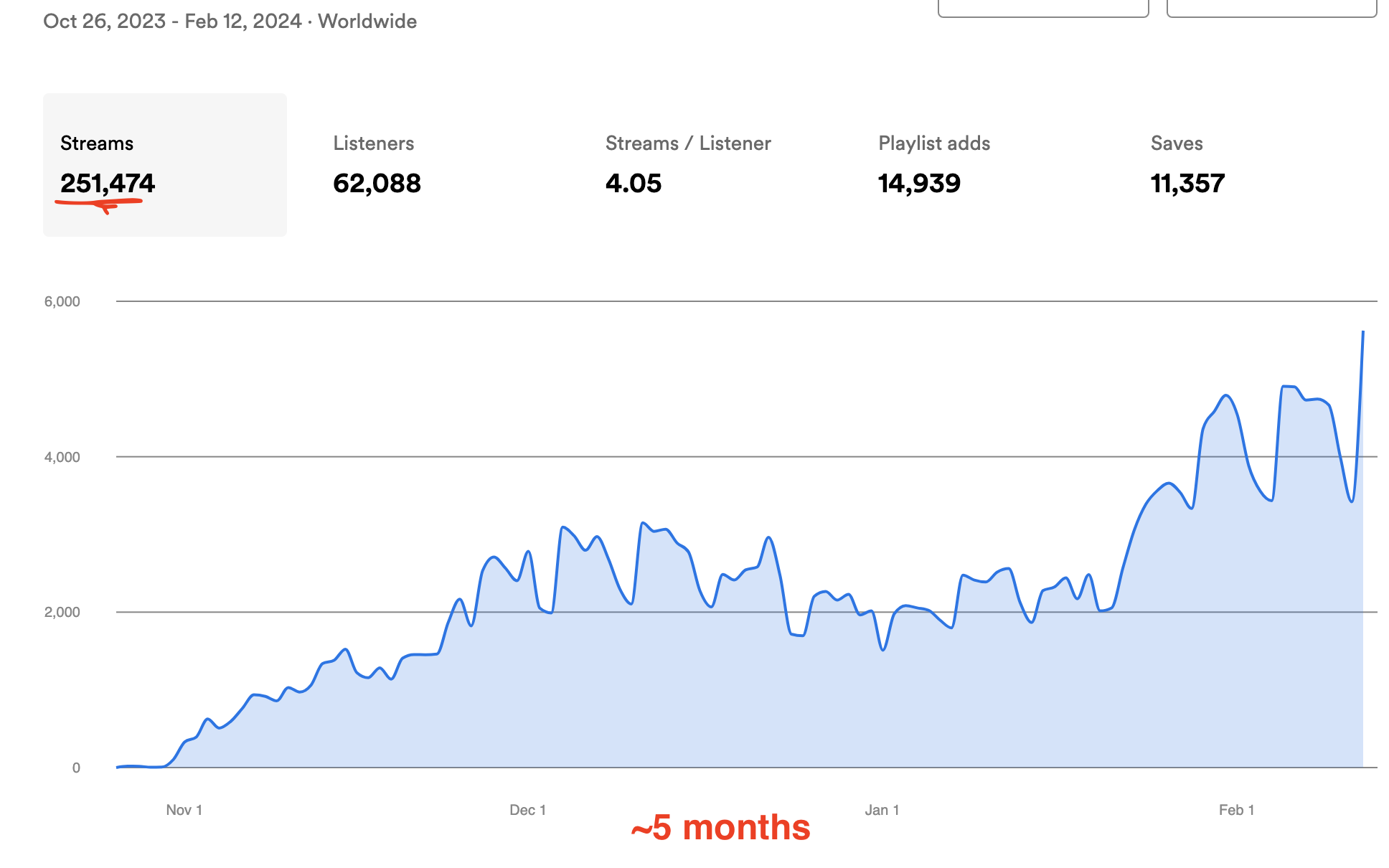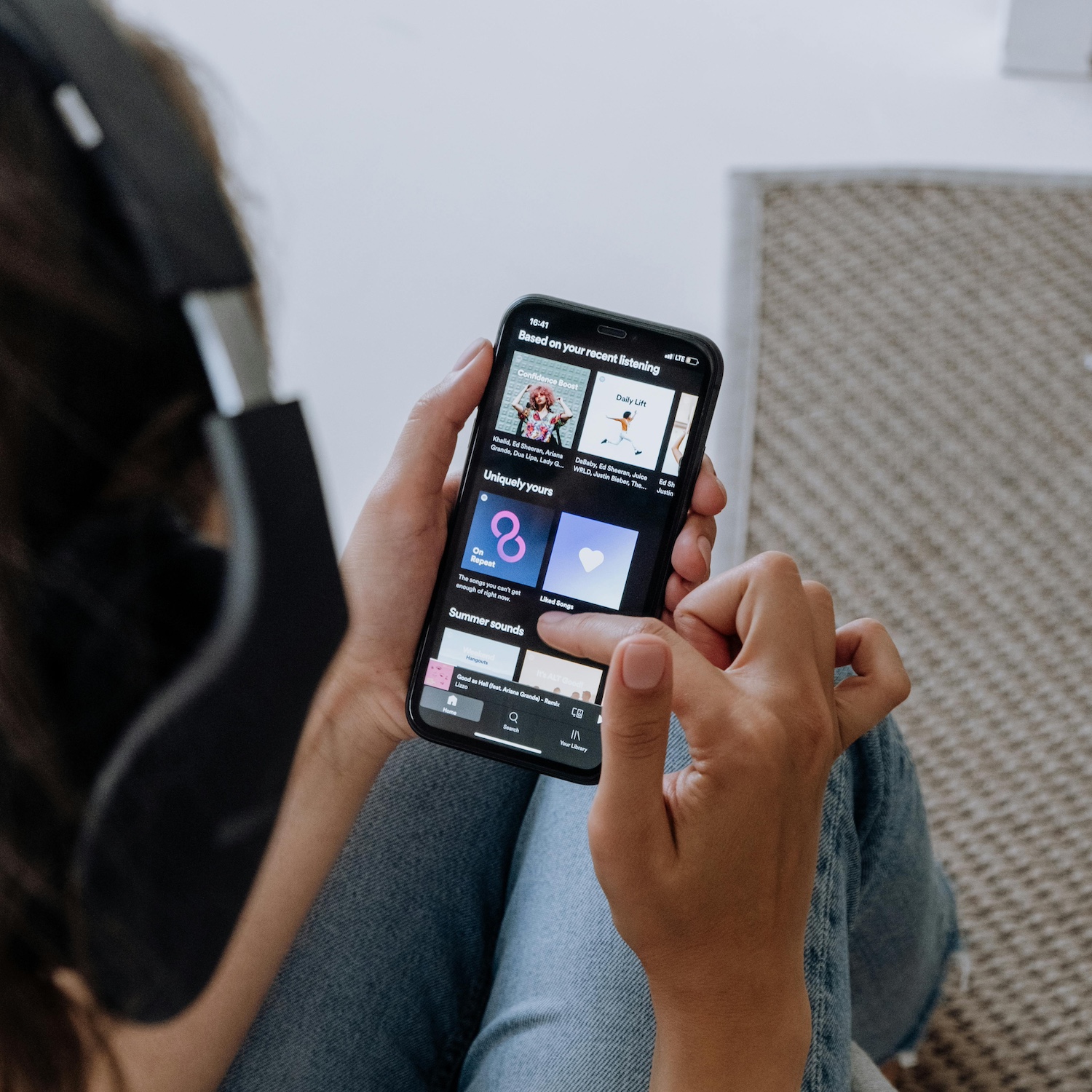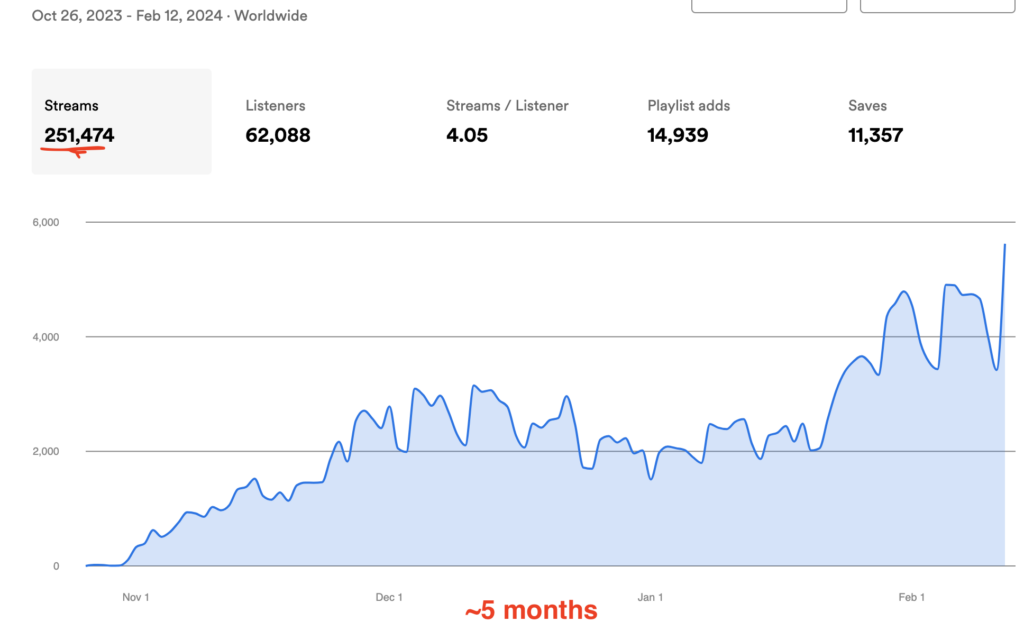I’ll start with this: I’m not great at time management.
In principle, I’m the best at it, like an ultra-productive-but-thoughtful-and-fun combo of Simon Sinek, Gary Vee, and Martha Stewart.
In practice… well, sometimes I do the things I said I would do.
Like most of you, I’m much better at thinking about time management and planning out random routines than I am at doing the dirty work of actually managing my time.
But I’m writing this anyway. Because…
- I think time management is (somehow still) an underrated skill.I’ve actually gotten a lot better at it over the last few years. (This is mostly because I was starting with a very low bar.)
- I have a few strong opinions. And last but not least…
- I want to.
With all that out of the way, let’s get into it.
1. The premise: Most musicians are awful at time management.
Here’s what I mean: So often, I hear people say they’re going to write a song, or record an album, or develop a social content calendar, or whatever, only to check back in with them a few months later and find that they’ve given up.
They started, maybe, but then things got busy, and they had to put the project on hold. Or they ran into an unforeseen roadblock (the producer they were working with moved, or their audio interface broke, or they had a distribution issue that messed up their Spotify profile) and so they lost their mojo and just… stopped.
This is relatable. It’s also sad, because art matters.
And that brings me to point number two.
2. Time management is really priority management.
If you’ve ever read a self-help book, you’ve probably heard this preached – and sure, it’s trite. But it’s also true.
Everyone gets 24 hours in a day. You can measure your priorities by what you put your time toward.
Now, there’s nuance to this. Sometimes there’s some mental misalignment, and what we’re working on really isn’t advancing us toward where we want to go. Sometimes there are crises, and no matter what we care about, we’ve got to drop everything just to try and get by.
But most often, we can tell what we care about by where we spend our time.
(Also worth nothing: As we spend our time on things, we grow to care more about them. But I’ll make this point in parentheses and small font so as to avoid chasing that rabbit trail.)
A couple things follow from all of this:
- We’re often dishonest with ourselves. (E.g., we tell ourselves we care about making music… but then we don’t make music.)
- Getting things done requires getting our values correctly ordered.
Which leads me to point three…
3. You’ll only be able to consistently do things that you care about.
If you hate TikTok, it’s going to be hard for you to grow a following there, because it’s going to be hard for you to consistently post on TikTok. If you hate writing, it’s going to be hard for you to regularly send a newsletter.
Conversely, if you love songwriting, you’ll look forward to the blocks of time you carve out for it – and it’ll be easier to carve out that time. If you love taking photos, it’ll probably be easy for you to stick to an Instagram schedule.
This is a stupid-obvious tip, but I’ve found it so helpful: If you want to have success with time management and get more things done, commit to doing things you care about.
“Great,” you say. “But still… how do I actually do them?”
Your prescient question leads me to point four…
4. Identify a regular place and a time for your work.
Two words for you that my college self would’ve hated to hear: Google calendar.
I used to balk – hard – at scheduling out my time, especially my non-work time. It was bad enough seeing the blue blocks intruding on my weekdays like bars on a cage; I needed space to breathe on the evenings and weekends, so I stringently avoided scheduling anything in any sort of written form.
Ostensibly, this left my after-work hours scot-free.
Practically, it meant projects always got pushed to the next day, then the next week, then the next decade.
It’s just so much easier to get something done when you specify the time that you’ll do it.
And, for an extra boost of productivity, specify the place in which you’ll do the thing, too. Sometimes, this is easy (“I’ll record the demos in my basement studio, duh”), but for tasks where place isn’t a given, it’s helpful to nail things down.
For example, I go to empty Dairy Queens to write my emails. The lonely laminate booths and weirdly cheerful atmosphere really get me into the right headspace.
That was a joke. But, really, I do go to the library pretty often to write – and whenever I get a table by the window, the words come more easily.
Okay, last productivity point…
5. Work with other people.
Cutting-edge research shows that it’s six gazillion times easier to maintain a habit when you have community built around it (and yes I made the number up, but not the main point).
You probably know this from experience: It’s easier to hold yourself accountable to projects when you work on them with other people. Gym habits are easier with a partner. Writing consistently is easier in a cohort. Studio sessions actually happen when you schedule them so that other humans are in the room.
Personally, just about everything I’ve worked on consistently over a period of time has happened because I’ve been held accountable.
You weren’t meant to go it alone. This is human nature. Lean into it.
Last thoughts…
This post is unavoidably pretty high-level; there are like a million books out there on this stuff (a few of which actually are worth reading), and the five points above are only a starting place.
But here are two more quick, kind-of-tangible tips:
Batching tasks makes things easier.
I keep learning this the hard way. Last year, I set a goal to produce one song each month by working on my music one day each week.
I failed miserably.
It was so hard to get in a groove; I’d set things up, start recording, and then come to the end of the day with a bit of a song done. Then, the next week, I’d get back into things and find that everything from the previous week sucked and I wanted to clear out whole sections and start again.
Lesson learned. This year, I’m planning to take a week off and record three or four songs at once, then release them over the next few months – you know, the way most sensible people do. I think this model (and task-batching in general) works much better.
Have grace for yourself.
If you’re a human, at some point in the future you will say that you’ll do something and then not do it. It happens. It will be okay. Tomorrow is almost certainly going to be a new day.
(And if you keep trying to work on something and keep failing to do it consistently, it’s either time to find community or to be honest with yourself about where your priorities lie.)
But yeah, one last productivity hack: Don’t beat yourself up.
All right, that’s it for today.
Hopefully this was helpful for someone. And I hope that, whether you take my productivity advice or never think about it again, you find a way to keep making music.
Good luck.








